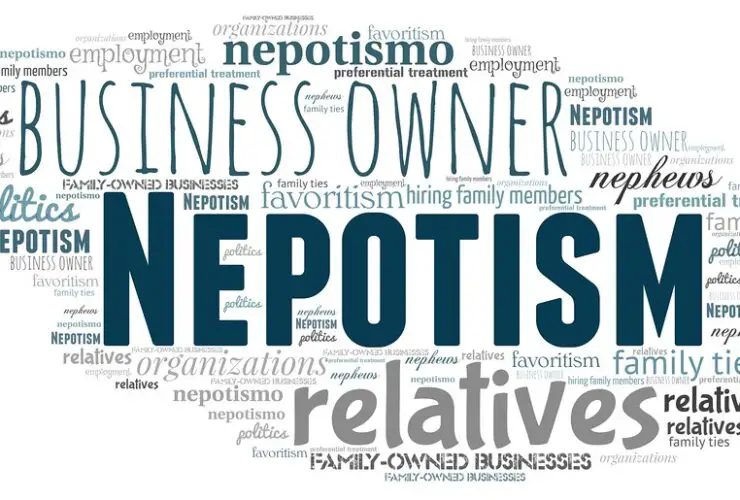Idea vs Concept: What’s the Difference?
Have you ever had a lightbulb moment? You know, when an idea suddenly pops into your head out of nowhere. That’s called having an “idea.” Ideas are those creative sparks that hit you when you least expect them.
But what happens after you get an idea?
This is where “concepts” come in.
A concept is what happens when you take an idea and start fleshing it out. It’s taking that initial spark and developing it into something more structured and well-thought-out.
Ideas are like seeds, while concepts are the plants that can grow from those seeds when given care and attention.
In this post, we’ll explore the differences between ideas and concepts with plenty of examples. Read on to learn how to take your ideas and turn them into actionable concepts!
Idea vs. Concept: The Key Differences
At first glance, ideas and concepts may seem very similar. But if you look a little closer, you’ll see some key differences:
Ideas are sparks while concepts have structure.
Ideas pop into your head spontaneously, sometimes when you least expect them! They are those “Aha!” moments that make you go “Oh wow, I just had a great idea!” Ideas are often fragmented and lack structure at first. They are that initial spark of inspiration.
Concepts, on the other hand, are fully formed and structured. When you develop your idea into a concept, you add more shape and substance to it. Concepts have a clear form with details and components that make sense together.
Ideas are subjective while concepts are more objective.
Ideas are highly personal and influenced by each individual’s subjective experiences. The ideas that occur to me will be different than the ideas that occur to you because we have had different backgrounds and experiences that shape our perspectives.
Concepts move away from subjectivity toward objectivity. By developing an idea into a concept, you refine it into something that makes logical sense when viewed objectively. Concepts build on ideas by adding evidence, structure, and reasoning.
Ideas are abstract but concepts get specific.
Ideas start abstract – they are broad, fuzzy, and lack concrete details. For example, you might have a vague idea that you want to “improve education” or “help the environment.” The idea itself is an abstract possibility that pops into your mind.
Concepts get much more concrete and specific. They zero in on exact details, components, and steps for how an idea can be manifested in reality. Developing a concept involves teasing out all the specifics involved with an idea to create something tangible.
| Aspect | Idea | Concept |
|---|---|---|
| Nature | Spontaneous spark of inspiration | Structured and well-thought-out plan |
| Form | Abstract, broad, and fragmented | Concrete, specific, and detailed |
| Subjectivity | Highly personal and subjective | More objective and logical |
| Level of Detail | Lacks structure and specifics | Includes precise components and steps |
| Actionability | Provides potential and possibilities | Enables actual progress and implementation |
| Examples | “I want to start a blog,” “I want to help endangered animals,” “I want to improve my community” | “I will start a bi-weekly cooking blog for busy young professionals,” “I will volunteer 10 hours per week at my local animal sanctuary,” “I will organize a neighborhood clean-up day to beautify the local park” |
From Idea to Concept: An Example
The best way to grasp the difference between ideas and concepts is through an example. Let’s explore how an initial idea turns into a fully formed concept:
The Idea: “I want to start a blog.”
This is a nice, simple idea that could pop into anyone’s head one day. Starting a blog allows you to share your thoughts, connect with others, and establish yourself as an expert in a field. The idea itself is an abstract possibility – the spark of “Wouldn’t it be cool to start a blog?”
Developing the Concept
Now it’s time to develop this idea into a structured, detailed concept by asking more concrete questions like:
- What would the blog be about? Food? Music? Finance? Determining the topic focuses on the idea.
- Who is the target audience? Millennials? Retirees? Parents? Defining the audience shapes content.
- What is the blog’s tone and style? Serious? Humorous? Conversational? The tone creates the voice.
- How often will it be updated? Daily? Weekly? Bi-weekly? The cadence establishes consistency.
- What will the name be? A memorable, fitting title is key for branding.
- What platform will I use? WordPress? Medium? Tumblr? The platform enables the blog to exist.
- What types of content will there be? Written posts? Videos? Podcasts? Content types provide variety.
- How will it make money? Ads? Affiliate marketing? Sponsored posts? Monetization allows income.
See how the idea became more refined and detailed as concrete elements were added? That’s the development from idea to concept.
The Concept: “I will start a bi-weekly cooking blog for busy young professionals.”
Now the initial idea has transformed into a structured concept by determining specifics:
- The blog will be about quick, easy recipes for busy young professionals without much cooking experience.
- It will target millennials aged 22-35 who live in urban areas and have limited time to cook elaborate meals.
- The tone will be conversational, humorous, and energetic. The goal is an approachable, fun resource for cooking novices.
- It will be updated twice a week with new recipes, tips and tricks. Consistency is key.
- The name will be “The 30-Minute Millennial” – memorable and fitting.
- I will use WordPress as an easy-to-use platform.
- Content will include written recipes, cooking videos, meal plan ideas, and nutrition tips.
- Revenue will come from ads, affiliate links, and sponsored content.
The concept takes the seed of the idea and cultivates it with precise choices to create a detailed plan of action. This moves it from a possibility to a reality!
More Examples of Ideas vs. Concepts
Let’s take a look at a few more examples that illustrate the difference between nebulous ideas and concrete concepts:
Idea: “I want to build something.”
This is an extremely broad idea that could apply to almost anything. It lacks specifics or direction.
Concept: “I will build a treehouse in my backyard to entertain my kids and their friends.”
The concept adds tangible details like the what, where, why, and who involved.
Idea: “I want to help endangered animals.”
This is a noble but vague idea lacking any plan.
Concept: “I will volunteer 10 hours per week at my local animal sanctuary walking dogs and cleaning kennels.”
The concept sets specific actions, amounts, locations, and animals to make the idea detailed.
Idea: “I want to improve my community.”
This is an abstract idea about community betterment. It raises the question, “In what ways specifically?”
Concept: “I will organize a neighborhood clean-up day to help beautify the local park and bring residents together.”
The concept takes the broad goal and makes it concrete with who, what, when, and how details.
Can you see how the concepts drill down on the specifics that turn vague, abstract ideas into something that can actually be implemented in reality? Let’s look at a few more just for good measure!
Idea: “Design something cool.”
Concept: “Make a robot friend to keep elderly people company using Arduino processors and 3D printed parts.”
Idea: “Write something popular.”
Concept: “I will launch a YouTube channel reviewing the latest video games for teenagers and millennials.”
Idea: “Invent something helpful.”
Concept: “Create a new app that lets people donate their spare change to charities with just a few clicks.”
Ideas Provide Potential, Concepts Enable Progress
At this point, it should be clear that ideas and concepts work hand in hand. Ideas provide that initial spark of inspiration and possibility. By themselves, ideas simply float in the ether as nice notions.
Turning ideas into concepts is what enables actual progress. Just as a seed needs to be planted and nurtured to grow into a plant, ideas need to be developed into concepts in order to bear fruit. Concepts empower you to take that spark of inspiration and make it a tangible reality.
So next time you have a flash of inspiration, take it one step further by refining your idea into an actionable concept. Add structure, specificity, and detail to give your idea roots. Developing concepts is what transforms wishes into plans, thoughts into things, and ideas into impact. Let your concepts branch out until they are robust enough to withstand the weight of the future you envision.
The difference between ideas and concepts is the difference between dreaming and doing. Turning ideas into concepts is how we go from possibilities to progress. With detailed, structured concepts in hand, there’s no limit to the positive change we can create!
The initial spark propels us forward, but the effort to refine that idea into viable concepts is the work that enables us to arrive at our desired destination.
So dream big through the endless possibilities of ideas, but stay grounded in the practical potential of detailed concepts. By marrying flashes of inspiration with concrete plans of action, we can build a brilliant future powered by imaginative ideas and realized through structured concepts.
Related Posts
Key Takeaways: Idea vs. Concept
- Ideas are abstract, broad, and spontaneous sparks of inspiration.
- Concepts are structured and specific plans formed by developing ideas with details.
- Ideas are subjective while concepts aim for objective logic and reasoning.
- Ideas provide initial sparks of potential while concepts enable actual progress.
- Turning ideas into actionable concepts is key to manifesting creative vision into reality.
The next time inspiration strikes, challenge yourself to not just have an idea, but to refine it into a concept. Add specifics on what, how, who, and why until your concept can stand firmly on the legs of details and direction. Solid concepts lead to achievement, while ideas without execution simply fade.
So catch those idea sparks as they come, but then do the work to shape them into concepts with substance. This takes your idea from floating in the clouds to having boots firmly on the ground. A strong concept will weather the storms of obstacles and challenges on the road from vision to reality.
With clear, refined concepts in hand, you have given your ideas wings – wings that can actually bear the weight of flight. So let your ideas soar skyward, but be sure to build them wings sturdy enough for the journey ahead. From sparks to flight, the sky is no limit when ideas become concepts!








